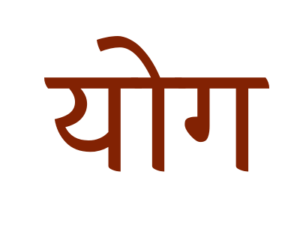
Definitions of yoga
Being a yogi means knowing yourself, controlling yourself and being yourself.
Mrigendra-tantra
Mrigendra-tantra
Definitions of yoga in primary sources
तां योगमिति मन्यन्ते स्थिरामिन्द्रियधारणाम् ॥
tāṁ yogam-iti manyante sthirām-indriya-dhāraṇām
Yoga is a steady control of our senses.
Katha-upanishada
योगस्थः कुरु कर्माणि सङ्गं त्यक्त्वा धनंजय । सिद्ध्यसिद्ध्योः समो भुत्वा समत्वं योग उच्यते ॥
yogasthaḥ kuru karmāṇi saṅgaṁ tyaktvā dhanaṁjayasiddhya-siddhyoḥ samo bhutvā samatvaṁ yoga ucyate
After establishing yourself in yoga, take actions, oh, Dhanandzhaia, rejecting attachments and approaching success and failure equally.
Bhagavadgita
अप्रमत्तस्तदा भवति योगो हि प्रभवाप्ययौ ॥
apramatta-stadā bhavati yogo hi prabhavā-pyayau
Then [in a yogic state, the one who practises] sobers up. Yoga is a birth and a departure.
Katha-upanishada
युक्ताहारविहारस्य युक्तचेष्टस्य कर्मसु । युक्तस्वप्नावबोधस्य योगो भवति दुःखहा॥
yuktā-hāra-vihārasya yukta-ceṣṭasya karmasu
yukta-svapnā-vabodhasya yogo bhavati duḥkhahā
For someone who controls food and leisure, activity in work, sleep and wakefulness, yoga becomes a destroyer of suffering.
Bhagavadgita
एकत्वं प्राणमनसोरिन्द्रियाणां तथेव च ।सर्वभावपरित्यागो योग इत्यभिधीयते ॥
ekatvaṃ prāṇa-manasor-indriyāṇāṃ tatheva ca sarva-bhāva-parityāgo yoga it-yabhi-dhīyate
Unity of breath, mind, and senses, as well as arresting different states of being is called “Yoga”.
Maytri upanishada
मैत्रीकरुणामुदितोपेक्षाणां सुखदुःखपुण्यापुण्यविषयाणां भावनातश्चित्तप्रसादनम् ॥
maitrī-karuṇā-mudito-pekṣāṇāṃ sukha-duḥkha- puṇya-apuṇya-viṣayāṇāṃ bhāvanātaś-citta-prasādanam
Kindness, compassion, happiness, learning [aimed at] prosperity, suffering, pure and impure evoke the integrity of consciousness.
Yoga-sutra
योगः कर्मसु कौशलम् ॥
yogaḥ karmasu kauśalam
Yoga is success in what you do.
Bhagavadgita
शाक्नोतीहैव यः सोढुं प्राक्शरीरविमोक्षणात् । कामक्रोधोद्भवं वेगं स युक्तः स सुखी नरः ॥
śāknotī-haiva yaḥ soḍhuṃ prāk-śarīra-vimokṣaṇāt
kāma-krodhod-bhavaṃ vegaṃ sa yuktaḥ sa sukhī naraḥ
The one who can, while here, before leaving the body, contain urges arising from craving and anger, is a yogi, the fortunate one.
Bhagavadgita
Formation of the word “yoga”
Morphology
The word “yoga” originated from the Sanskrit root युज् (yuj). According to the dictionary of indian roots (Dhatupattha), it has three meanings.
The first meaning defines the root itself and means “to bind”. The second one defines “yuj” as “samyamu” and means “self control” (from the root yam “to control”). And the third one is samādhi, meaning “binding together”.
Different Yoga Schools highlight different definitions of the root. For example, Vyasa, who was the first commentator on Patanjali´s Yoga Sutras, insisted that the correct meaning of “yuj” is “samadhi”, even though Bhagavadgita clearly tended towards “yuj” as “samyama”. At the same time, Pashupata Sutra believed that yoga should be considered as “connection”.
